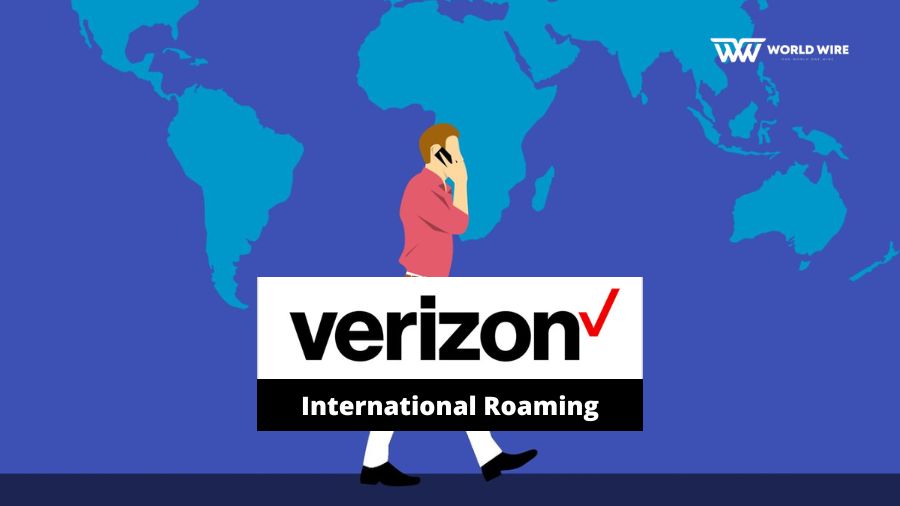
Accidentally using data roaming with Verizon can lead to significant and unexpected charges. This guide helps you prevent such expenses and proactively manage your data application when traveling. Imagine being on vacation or a business trip, enjoying the convenience of your phone, only to receive a massive bill due to roaming costs. This is a common problem for many Verizon customers, especially during international travel. This article defines data roaming, outlines the potential pitfalls of accidental roaming, and equips you with practical solutions to effectively prevent them. We will delve into determineing roaming triggers, understanding Verizon’s plans, and implementing proactive data management strategies. We will also cover crucial topics like data saver mode and other cost-effective options. This guide is structured to help you easily navigate the topic and implement the suggested solutions.
Understanding Data Roaming
What is Data Roaming?
Data roaming is a mobile network service that allows your mobile device to connect to a network outside of your home service area. When you travel internationally or enter areas outside your home service offerr’s network coverage, your device needs to connect to another network. This connection, called data roaming, allows you to make calls, send texts, use apps, and access the internet. However, this service can come with substantial costs if you’re not careful. When you’re in a foreign country, you must use a data plan from your home network or a foreign network.
Why Data Roaming Charges Occur
These charges occur when you use data or voice services on a network that you’re not subscribed to. This use is not covered under your plan, so there are additional costs. Your plan should cover standard application within your service area, but there are additional costs outside that coverage.
determineing Data Roaming Triggers
Related Post : What Happens When TravelPass Data Runs Out? Options.
Understanding Your Verizon Plan
Reviewing your Verizon plan details is crucial to understanding your data roaming policy. Look for specific clauses regarding international data application or data roaming charges. Some plans might include complimentary data roaming for certain countries or regions, while others might have specific limitations and cost tiers. This information will help you avoid accidental charges.
Travel Considerations and Planning
Before your trip, review your Verizon plan’s terms and conditions to ensure you understand data roaming fees. Planning your data application while traveling internationally can save money. For instance, consider downloading large files beforehand to avoid using data roaming during your trip. If you are traveling to varied countries, study their networks to avoid data roaming charges and use a foreign network instead.
Preventing Accidental Data Roaming
Disabling Roaming
One of the most effective methods to avoid unexpected roaming charges is to disable roaming when traveling outside your service area. This option is readily available in your Verizon account settings. You can disable it completely or opt to limit its use. Disabling roaming altogether prevents your device from connecting to foreign networks, thus eliminating the possibility of incurring charges. You can do this via your Verizon app or by contacting customer support.
Utilizing Data Saver Mode
Verizon offers data saver mode for reducing data application. This mode can significantly reduce your data consumption and consequently, help to manage and prevent charges. Activate data saver mode before your travels and limit data access while on a foreign network. Activating this mode can save you money on roaming fees.
Consider a Temporary Foreign Plan
Consider an international plan or a temporary data plan if your travel involves extensive use of data.
Managing Data application
Data Saving Tips
Using data-saving attributes can significantly lower your roaming charges. These attributes help maximize your data application by limiting background data updates, compressing images, and adjusting streaming quality. These attributes can be found in your phone’s settings and you should check them before traveling. Turn off automatic data downloads, limit high-bandwidth activities like video streaming, and download text beforehand.
Utilizing Wi-Fi
Prioritize using Wi-Fi whenever possible. This complimentary internet service can save you significant money. Utilize public or available Wi-Fi networks to access the internet while traveling.
Contacting Customer Support
If you have querys or concerns about data roaming, contacting customer support is always advisable. Customer service representatives can offer personalized guidance and help you understand your plan’s data roaming policy.
Staying Informed
Checking Your Account Regularly
Regularly checking your Verizon account statement is crucial. Look for any discrepancies or unexpected charges. This way you can address them promptly if necessary. Checking your account regularly helps you stay informed about any potential issues with your account.
In summary, accidentally using Verizon data roaming can lead to hefty bills. Proactive measures like disabling roaming, understanding your plan, and utilizing data-saving options are crucial for preventing unexpected charges. By following these steps, you can control your Verizon data application and avoid surprises. If you’re still unsure, contact Verizon customer support for personalized guidance and to avoid potential roaming charges. Learn how to protect your wallet and manage your data effectively with Verizon.